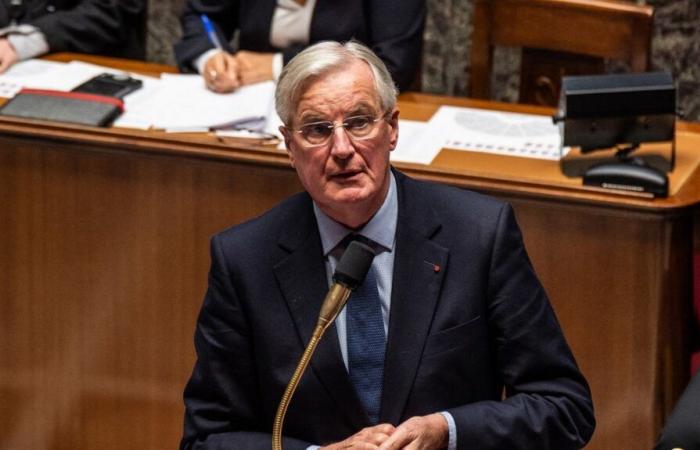
France is trying to unite against the trade agreement between the European Union (EU) and Mercosur. While the Prime Minister, Michel Barnier, goes to Brussels on Wednesday November 13 to convey the position of the French government, which judges the text “unacceptable as it stands”, more than 600 parliamentarians from different political groups signed a platform to oppose this treaty with Brazil, Argentina, Uruguay, Paraguay and Bolivia. They recall the conditions set by France to approve the text: “not to increase imported deforestation in the European Union, bring the agreement into line with the Paris climate agreement and introduce mirror measures in health and environmental matters.”
Added to this is the FNSEA, the first French agricultural union, which called for national mobilization “from Monday”, while the G20 meeting in Brazil will be held on November 17 and 18. However, it will be difficult to block the agreement at the European Union level. Here's why.
Because France finds itself isolated
The trade treaty is played out at EU level. “The game is no longer frankly at the French level, it takes place in Brussels, admitted on BFMTV on Tuesday, Pol Devillers, vice-president of Young Farmers. Our goal is to have a real announcement, perhaps from the President of the Republic, in Brussels.” But the weight of a commitment from the French president must be put into perspective. On the European and international scenes, Emmanuel Macron is “weakened and even isolated, if we stick for example to its position on [l’accord entre l’UE et le] Mercosur, alone against almost all”according to Public Senate.
The ratification or not of this trade treaty will be decided by qualified majority in the European Council. Except that France is the only major European country to oppose it. Poland and Austria have regularly expressed their opposition, but this is insufficient since at least four states would be needed to constitute a blocking minority.
However, some want to believe it, judging that countries like Ireland or the Netherlands could tip the scales. The Minister of Agriculture, Annie Genevard, assured that France was determined to make its voice heard in Brussels to demand mirror clauses, that is to say reciprocal restrictive measures between European and South American products. “We cannot oppose alone (…) All the work consists of rallying as many countries as possible to our cause, so as to be able to impose a veto on this agreement”she declared on Tuesday to MPs during the government question session.
This is the moment for Michel Barnier, who is a fine connoisseur of the mysteries of the EU (he was a negotiator for Brexit) and personally knows many leaders, to deploy all his diplomacy. But it is difficult to think that his meeting on Wednesday with the President of the European Commission, Ursula von der Leyen, will be enough to turn the tide.
Because EU heavyweights are pushing the text
Faced with France and a handful of other countries, important members of the Twenty-Seven are on the contrary very favorable to the free trade treaty with Mercosur. Among them: Germany, Spain and Portugal.
For Germany, this includes finding outlets for its powerful automobile industry, while the Chinese market is closing. A perspective that diverges from that of France, which is above all trying to protect its agriculture, and the little industry that remains.
Spain sees it as a major commercial opportunity. “Madrid has been at the forefront of the latest effort to sign the EU-Mercosur agreement, which will open up enormous opportunities for both regional blocs”declared the Spanish Prime Minister, Pedro Sanchez, at the opening of the summit between the European Union and the Community of Latin American and Caribbean States (CELAC), in July 2023, reported the magazine Marianne.
The agreement must also be ratified by the European Parliament. A brake? Not really. According to a French MEP, opposition to the text is in the minority within this chamber.
Because the European Commission wants to finalize the agreement
In addition to important EU member countries, the European Union executive is encouraging the signing of the treaty. “If we don't make a deal [avec le Mercosur]this void will be filled by China”warned the future head of European diplomacy, Kaja Kallas, on Tuesday. Once in force, the agreement “would increase by 15 billion euros” the gross domestic product of the EU and “11.4 billion euros that of the Mercosur countries”also defended Trade Commissioner Valdis Dombrovskis, chief negotiator on the European side.
Moreover, as noted by the economic daily Les EchosUrsula von der Leyen, the President of the Commission, proposed in September to the Twenty-Seven to impose additional customs duties on Chinese electric vehicles, against the advice of Berlin. A measure which came into force on October 31. The head of the EU executive can thus “allow yourself to validate the Mercosur agreement against the opinion of Paris, without feeding the suspicion of wanting to favor Germany”. Everything seems to indicate that the treaty, in the works for more than twenty years, is about to be finalized.





